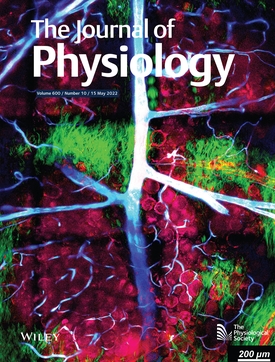卒中后疲劳--是一个多维问题还是一组疾病?卒中后疲劳的表型分析。
IF 4.7
2区 医学
Q1 NEUROSCIENCES
引用次数: 0
摘要
中风后疲劳是一个对发病率和死亡率有重大影响的慢性问题,迫切需要有效的治疗方法。近十年来,人们对了解疲劳的病理生理学和开发治疗方法的兴趣大大增加。在这篇综述中,在总结了理解慢性疲劳的理论框架之后,我说明了为什么疲劳表型是充分理解病理生理学的必要步骤,而病理生理学又是开发有效治疗方法的关键。然后,我对目前有关卒中后疲劳的文献进行了评估,以期确定卒中后疲劳的表型。本文章由计算机程序翻译,如有差异,请以英文原文为准。
Post-stroke fatigue - a multidimensional problem or a cluster of disorders? A case for phenotyping post-stroke fatigue.
Post-stroke fatigue is a chronic problem with significant impact on morbidity and mortality, which urgently needs effective treatments. The last decade has seen a considerable increase in interest in understanding the pathophysiology of fatigue and developing treatments. In this review, following a summary of theoretical frameworks to understand chronic fatigue, I make a case for why phenotyping fatigue is a necessary step to fully understand pathophysiology, which in turn is essential for the development of robust treatments. I then appraise current post-stroke fatigue literature with the view of identifying post-stroke fatigue phenotypes.
求助全文
通过发布文献求助,成功后即可免费获取论文全文。
去求助
来源期刊

Journal of Physiology-London
医学-神经科学
CiteScore
9.70
自引率
7.30%
发文量
817
审稿时长
2 months
期刊介绍:
The Journal of Physiology publishes full-length original Research Papers and Techniques for Physiology, which are short papers aimed at disseminating new techniques for physiological research. Articles solicited by the Editorial Board include Perspectives, Symposium Reports and Topical Reviews, which highlight areas of special physiological interest. CrossTalk articles are short editorial-style invited articles framing a debate between experts in the field on controversial topics. Letters to the Editor and Journal Club articles are also published. All categories of papers are subjected to peer reivew.
The Journal of Physiology welcomes submitted research papers in all areas of physiology. Authors should present original work that illustrates new physiological principles or mechanisms. Papers on work at the molecular level, at the level of the cell membrane, single cells, tissues or organs and on systems physiology are all acceptable. Theoretical papers and papers that use computational models to further our understanding of physiological processes will be considered if based on experimentally derived data and if the hypothesis advanced is directly amenable to experimental testing. While emphasis is on human and mammalian physiology, work on lower vertebrate or invertebrate preparations may be suitable if it furthers the understanding of the functioning of other organisms including mammals.
 求助内容:
求助内容: 应助结果提醒方式:
应助结果提醒方式:


